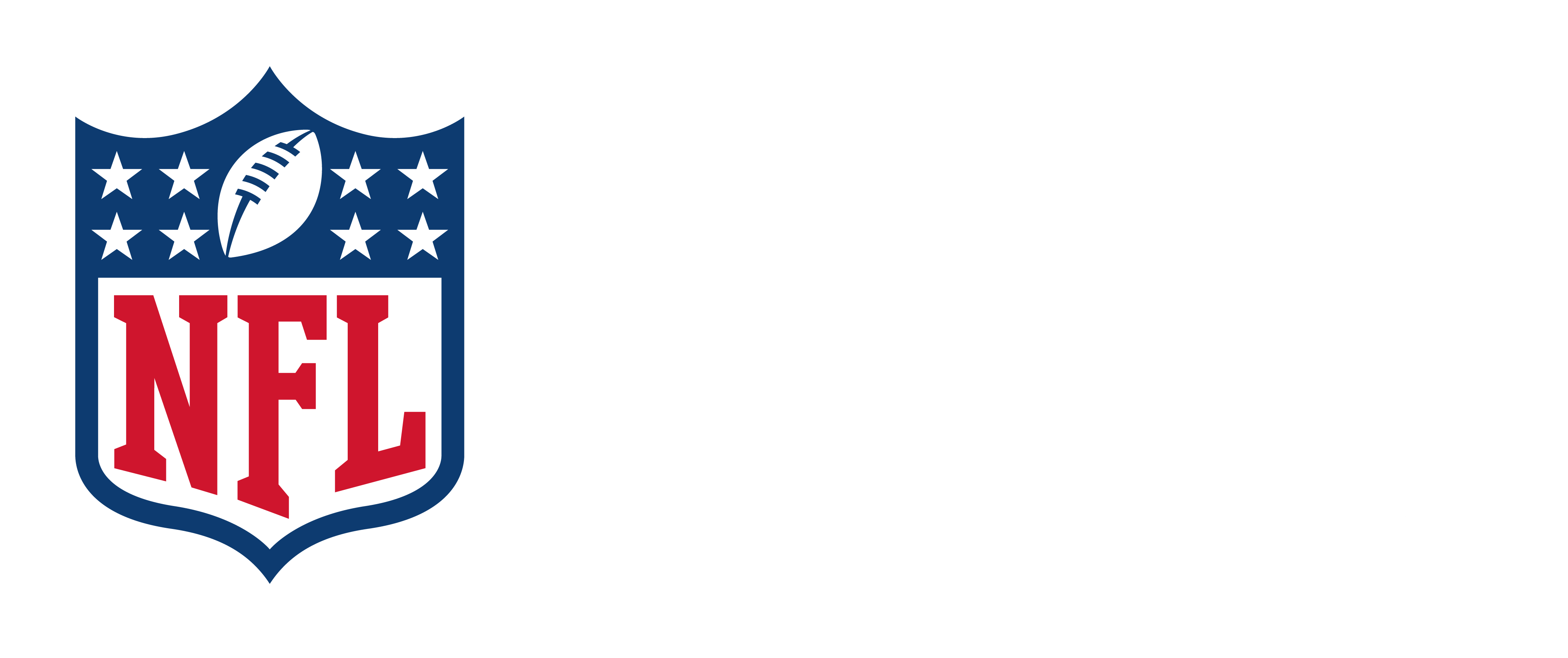New tools to encourage innovation and advance design in the development of improved protective equipment are now available for engineers and entrepreneurs. The toolkit includes:
- Finite element models of modern football helmets
- Impact test dummy components
- Test conditions simulating on-field impacts

A New Engineering Resource for Football Helmet Design
As part of the NFL's Play Smart. Play Safe. initiative, the NFL pledged $60 million toward the creation and funding of a five-year project called the Engineering Roadmap, funded by the NFL and managed by Football Research, Inc. (FRI). The project, executed in collaboration with Biocore, aims to improve the understanding of the biomechanics of head injuries in professional football and to create incentives for helmet manufacturers, small businesses, entrepreneurs, universities and others to develop and commercialize new and improved protective equipment, including helmets. Biocore provides engineering services and biomechanics expertise to help better understand why injuries happen and how to reduce their potential impact.
Under the Engineering Roadmap, Biocore and FRI—with funding support provided by the NFL—collaborated with partners at the University of Virginia, Wake Forest University School of Medicine, KTH Royal Institute of Technology, and the University of Waterloo to develop open-source finite element (FE) models of four modern football helmets. FE models are computational tools developed by breaking an object down into simpler parts (finite elements) and assembling them into a larger system of equations to model an entire structure—this facilitates the efficient analysis of design changes to that structure. FE models have been used to improve designs in many engineered products, including those in the aeronautics and automotive industries. The FE models of football helmets are now available to the public as a platform and baseline resource for injury prevention research and to stimulate the development of novel and highly effective helmet designs and prototypes.
Using the latest knowledge of concussion mechanisms, Biocore developed technical specifications and experimental validation data for these four different modern football helmets. The computational models are designed to help predict how a product will react to real-world forces such as a helmet-to-helmet impact, helmet-to-ground impact or helmet-to-shoulder impact.

The models were created as one way to enable improvements in the safety of protective equipment in football. They are also part of an effort to build bridges between innovators creating products and experts doing leading biomechanical research on concussion prevention.

The models are publically available online to manufacturers, designers, innovators, entrepreneurs, universities, and others working to develop effective, novel helmet designs to enhance athlete health and safety.
Many universities and private companies have expertise and capabilities in FE modeling. To learn more about the models and for additional resources, visit Biocore’s Frequently Asked Questions page.
On May 9, Dr. Richard Kent—an engineering expert who works at the intersection of biomechanics and sports—shared the new toolkit in a webinar for engineers and entrepreneurs. Dr. Kent is a Professor of Mechanical & Aerospace Engineering, Biomedical Engineering and Emergency Medicine at the University of Virginia, past Deputy Director of the UVA Center for Applied Biomechanics, Co-Founder of Biomechanics Consulting & Research, LLC (Biocore) and a consultant to the NFL Health and Safety Committee.
To view the webinar, click and register here or you can review the full presentation






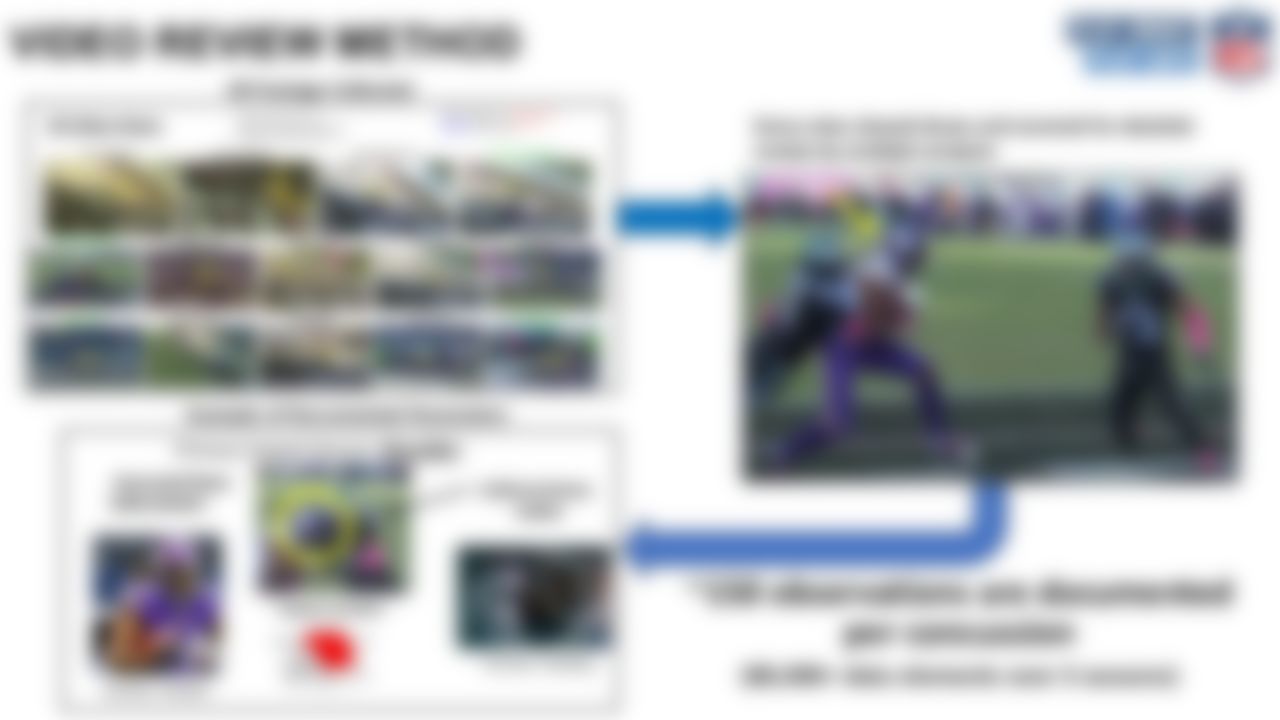




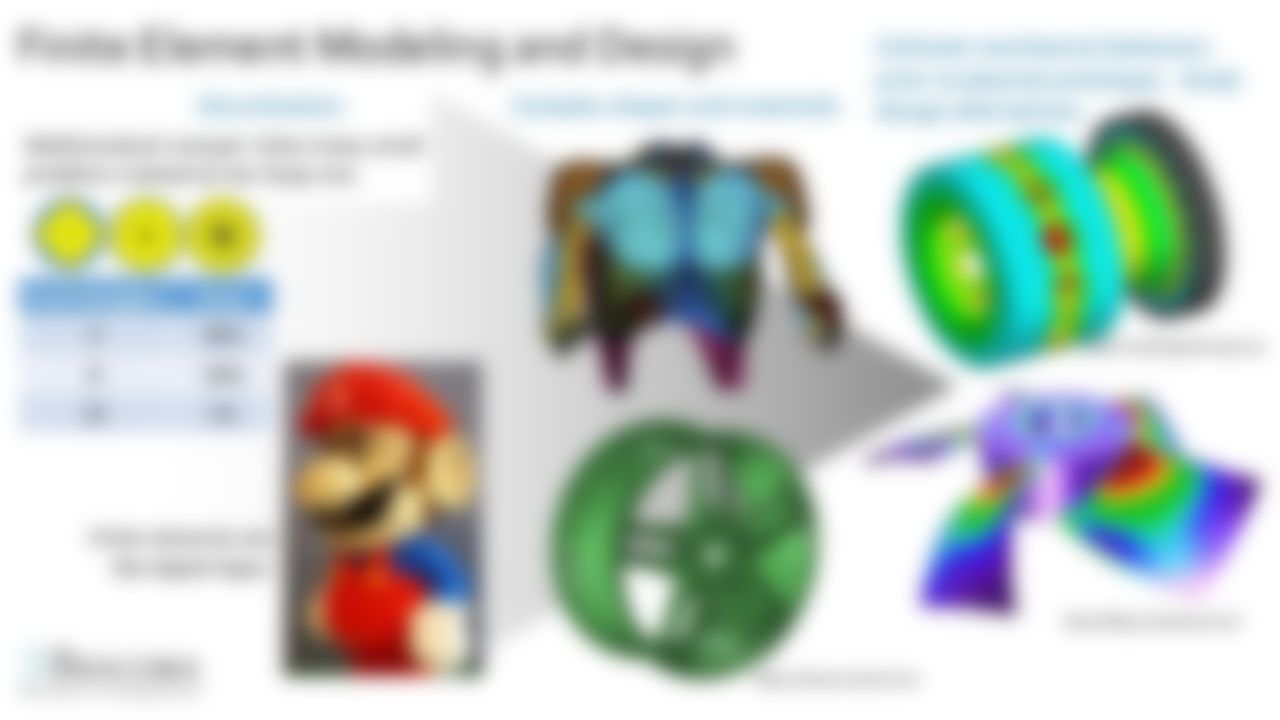
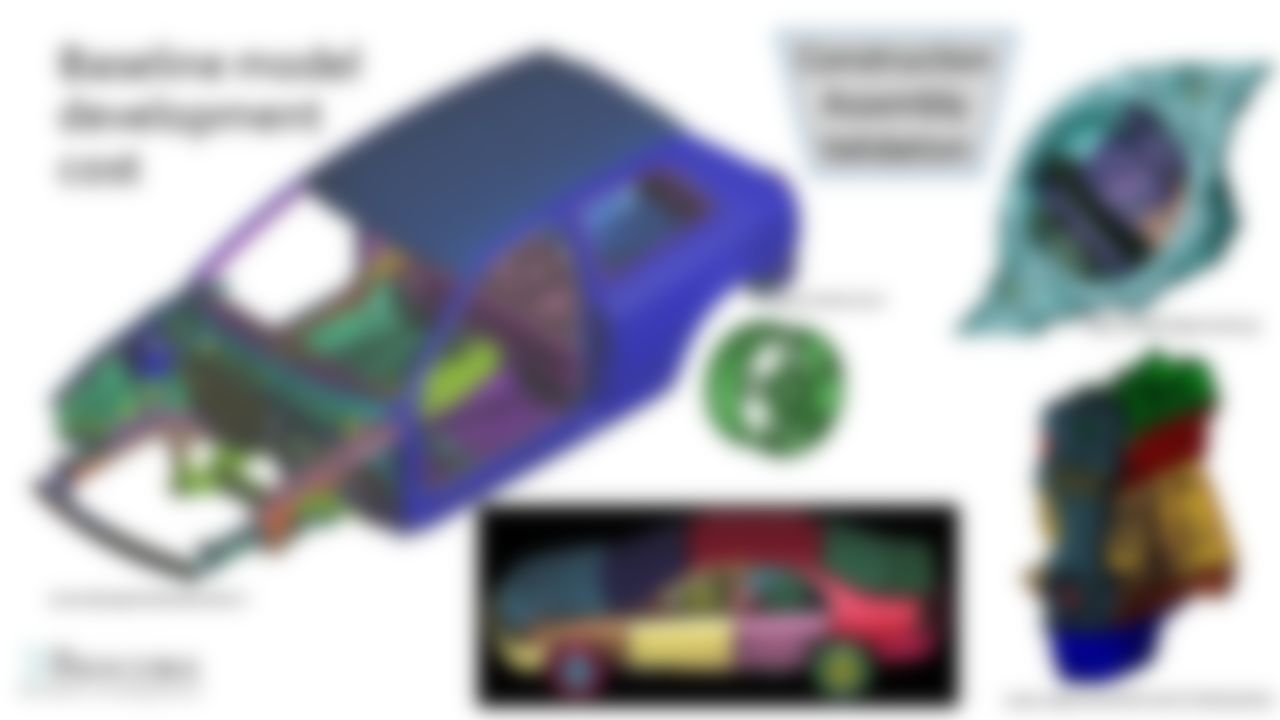

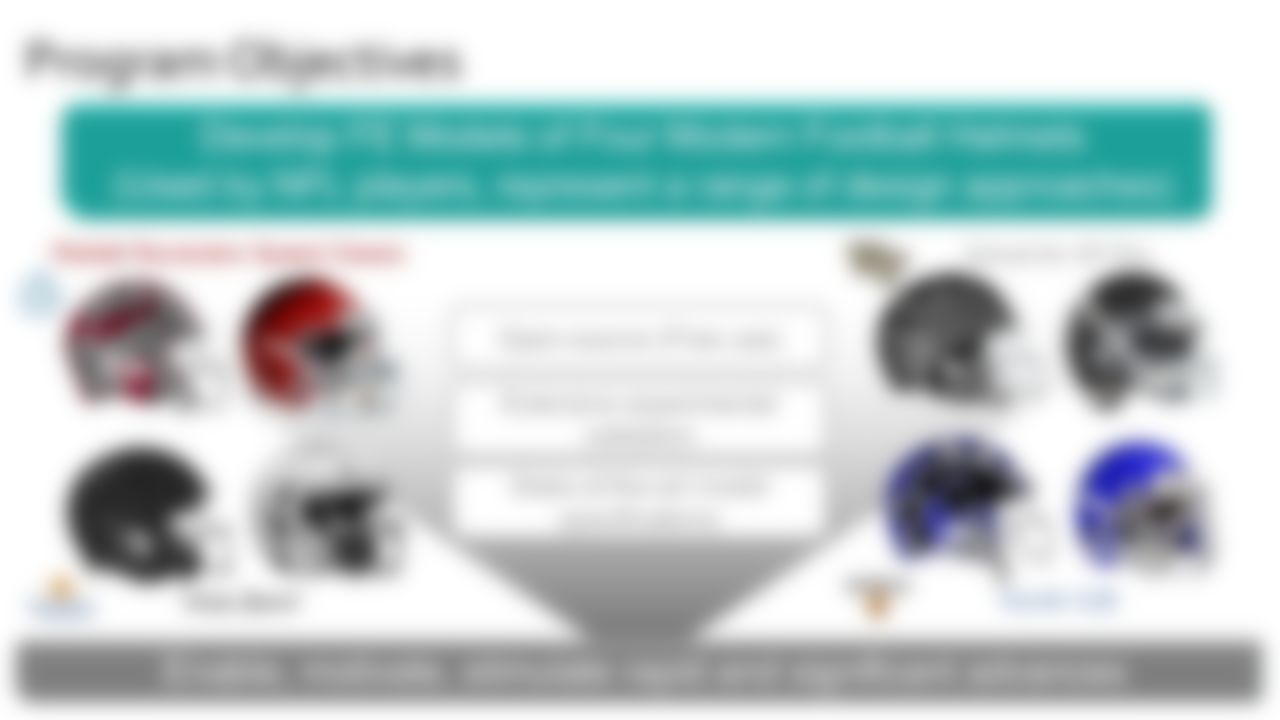



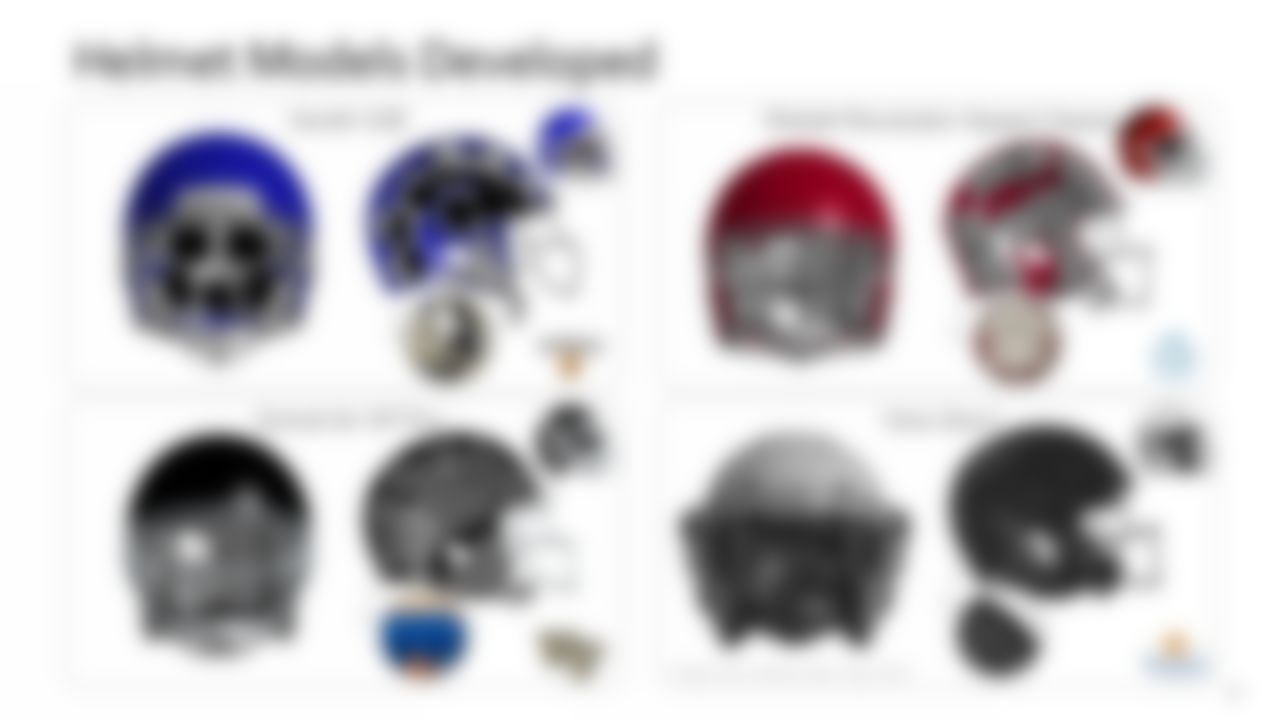
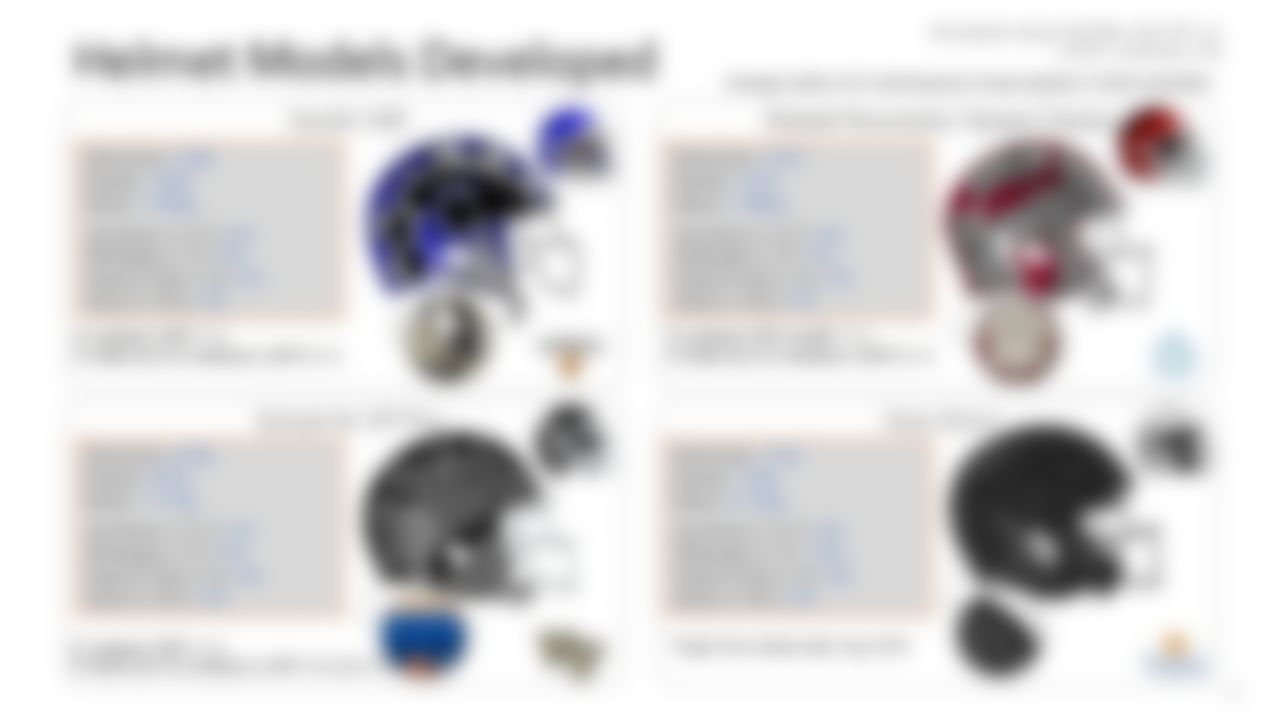
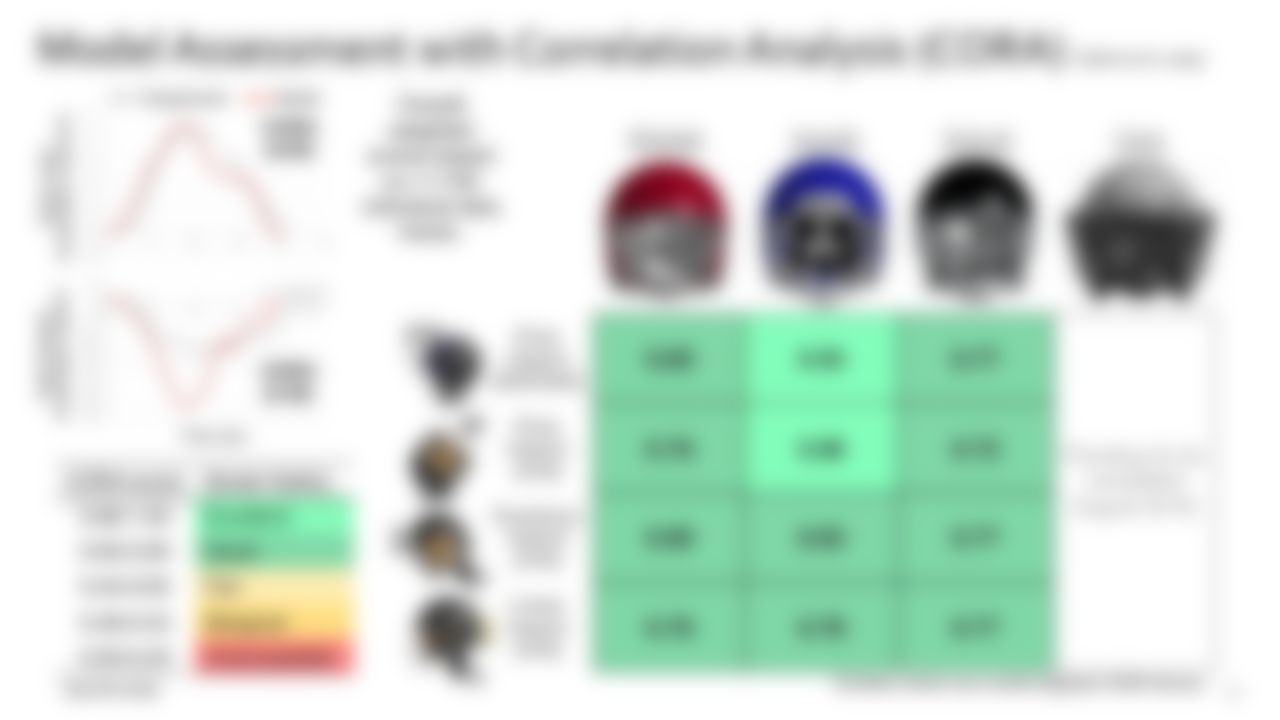
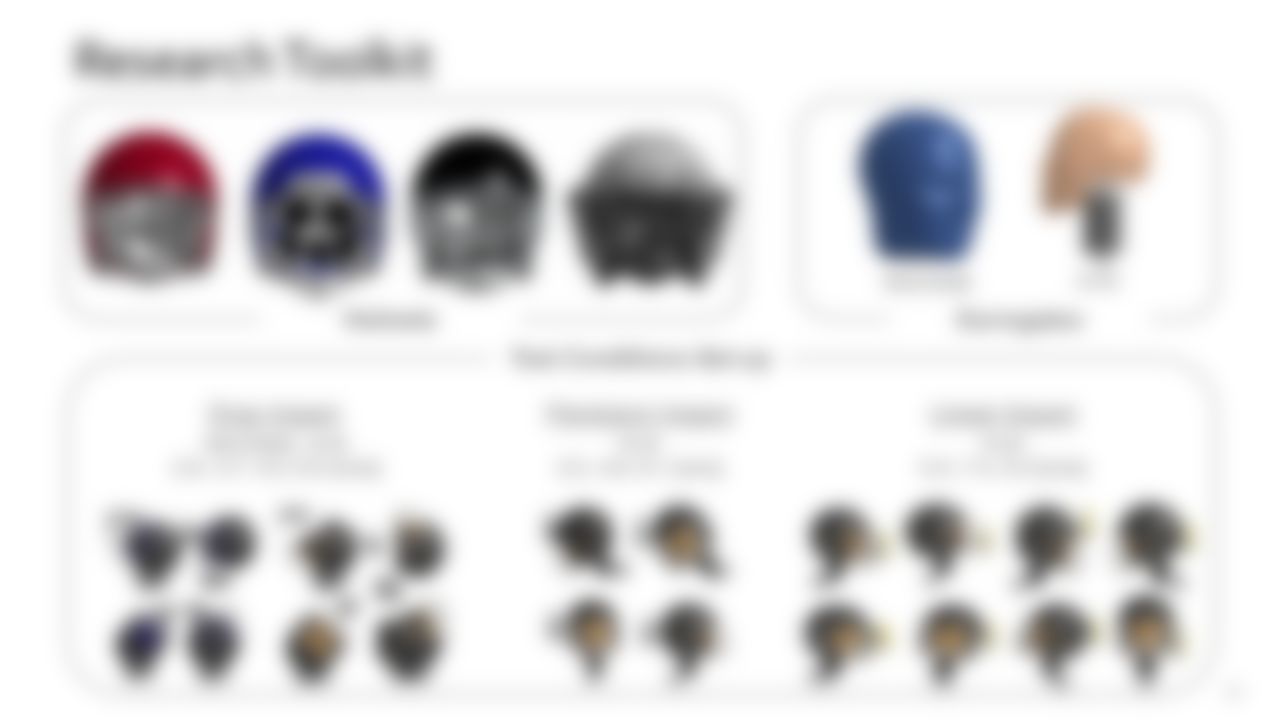

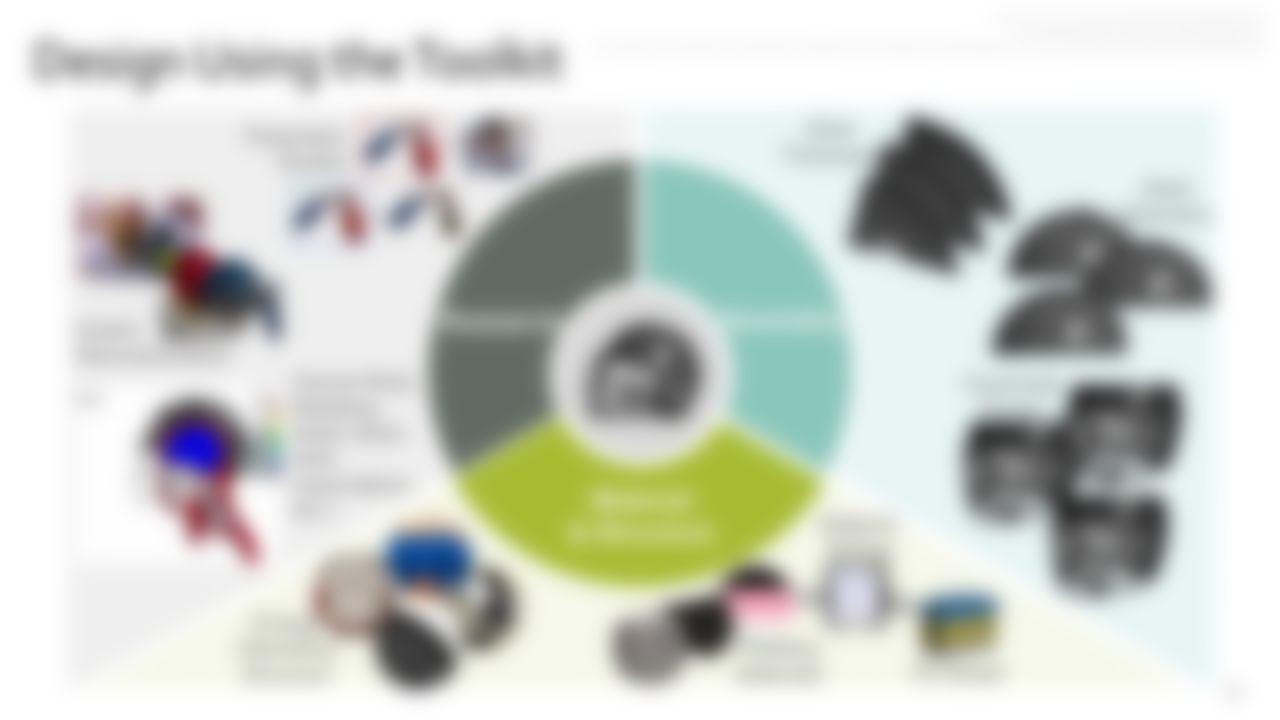





New Video Review Data and HeadHealthTECH Challenges Aim to Improve Designs for Protective Equipment
Developing FE models for football helmets is just one of many ways that FRI is sharing research, data, tools and information to crowdsource and stimulate innovation in protective equipment.
In 2017, Dr. Jeff Crandall—Director of UVA Center for Applied Biomechanics, Chairman of the NFL Engineering Committee and Co-Founder of Biocore—led a team of biomechanical engineers to complete a comprehensive video review of player impacts to better understand concussion-causing events. The experts compiled this data by analyzing video of all 459 reported concussions sustained in NFL games during the 2015 and 2016 seasons. The team reviewed concussion-causing impacts to examine various factors such as the angles at which collisions occur and how they vary by position.
With more data available on the types of impacts that cause head injuries, the engineering design of helmets and other protective equipment can be more targeted.

The work to share data and improve protective equipment is closely associated with another component of the Engineering Roadmap: the HeadHealthTECH Challenges. Through the TECH Challenge series, FRI solicit proposals for improvements in protective equipment.
The NFL and FRI partnered with Duke University's Clinical and Translational Science Institute to create the TECH Challenges—which aim to deepen understanding of and advance solutions in the areas of head protection, materials science and kinematic measurement, among others.
In addition to potential access to funding, all applicants receive constructive feedback from Duke CTSI biomechanical experts to help refine innovations and increase chances for success on future submissions.
